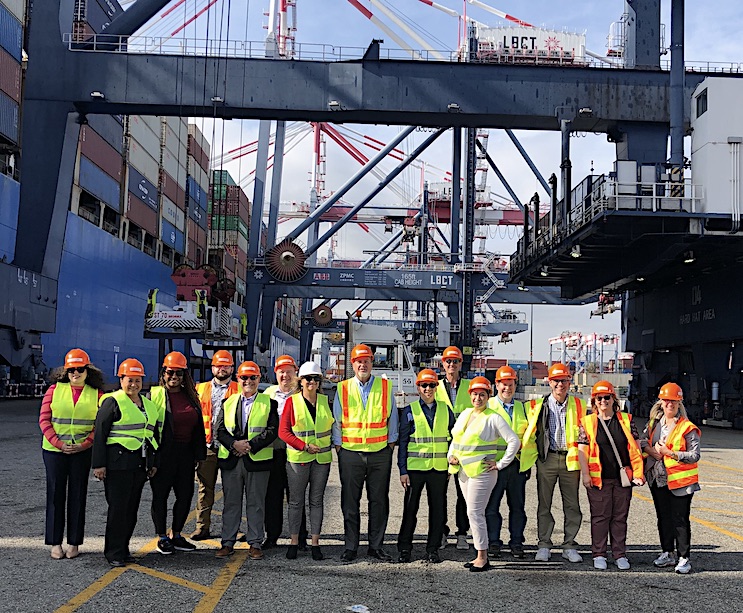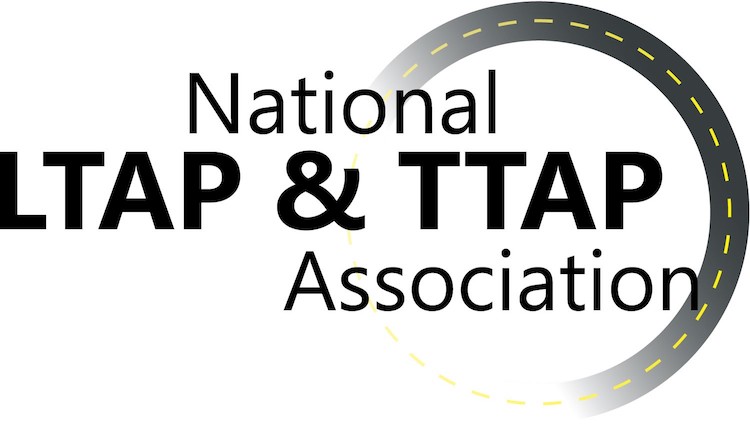CALTAP Hosts 2023 Western NLTAPA
The California LTAP Center (CALTAP) was pleased to host this year's annual Western Regional NLTAPA meeting in late April, bringing together local assistance partners and practitioners from neighboring state LTAPs, FHWA, and Caltrans. These regional meetings have become an effective way for LTAP staff to celebrate successes, address common program challenges, and collaborate on approaches and strategies to better engage, support, and train our local public agency clients.
 This year's regional meeting in Long Beach allowed CALTAP to showcase some of the partners and projects that make our city and region unique. The Port of Long Beach, which hosted the three-day session at its downtown headquarters, is one such partner—its innovative approach to training and technical assistance was featured as part of the first day's events.
This year's regional meeting in Long Beach allowed CALTAP to showcase some of the partners and projects that make our city and region unique. The Port of Long Beach, which hosted the three-day session at its downtown headquarters, is one such partner—its innovative approach to training and technical assistance was featured as part of the first day's events.
Kerry Gerot, the Port’s Director of Communications & Community Relations, along with Communications Officer Alejandra Guitron, provided an overview of some of the Port’s cutting-edge programs that ensure a consistent talent pipeline of future professionals who understand the trade and transportation sector. This includes a unique partnership with the Long Beach Unified School District (LBUSD) in developing high school academies that emphasize logistics and STEM, where graduates of these programs are ready for higher education as well as direct employment in both public and private sectors. Local government, often responsible for managing freight activity and helping to fund projects that support freight flows, particularly benefits from a knowledgeable workforce.
The Port is also a global leader in “green supply chain” efforts, and Western NLTAPA participants had a rare chance to visit the greenest and most technologically advanced container terminal in the world: the Long Beach Container Terminal (LBCT). In support of the Port’s Green Port Policy and San Pedro Bay Ports Clean Air Action Plan, LBCT has taken an aggressive approach to terminal electrification and the use of on-dock rail and storm water pollution prevention. With the recent release of its Net Zero Action Plan, LBCT is on its way to becoming the world’s first emission-free cargo handling operation of its kind by 2030.
For NLTAPA guests, the terminal visit offered a glimpse into the future of transportation. It also demonstrated the kind of knowledge and skills that are needed to build and manage transportation systems, with significant implications for organizations that train the workforce and offer technical assistance to local government.

What is NLTAPA?
Formed in 1991, the National Local & Tribal Technical Assistance Program Association is a not-for-profit member organization that represents the 51 LTAP and 6 TTAP Centers operating across the United States and Puerto Rico.
The association’s main objectives are to build awareness about LTAP within the transportation community, assist FHWA with developing program strategies, and build Center capacity to best meet the needs of local agency clients.
For more information:
The NLTAPA Website
FHWA's Center for Local Aid Support
Long Beach Container Terminal
LBCT is combining two aging shipping terminals into the greenest most technologically advanced container terminal in the world. At full build-out the new terminal will have more than double the capacity of the two originals and cut air pollution by more than half.
Working together with the Port of Long Beach, LBCT has enacted aggressive environmental measures of the Green Port Policy and San Pedro Bay Ports Clean Air Action Plan to improve air quality and reduce environmental impact.
The New LBCT terminal includes:
- Shore power for ships
- Expanded on-dock cargo rail
- Cleaner yard equipment
- Electric stacking cranes
- Green Flag Vessel Speed Reduction
- Low-sulfur engine fuels
- Storm water pollution prevention
- Solar panels
- All LEED Certified Buildings

